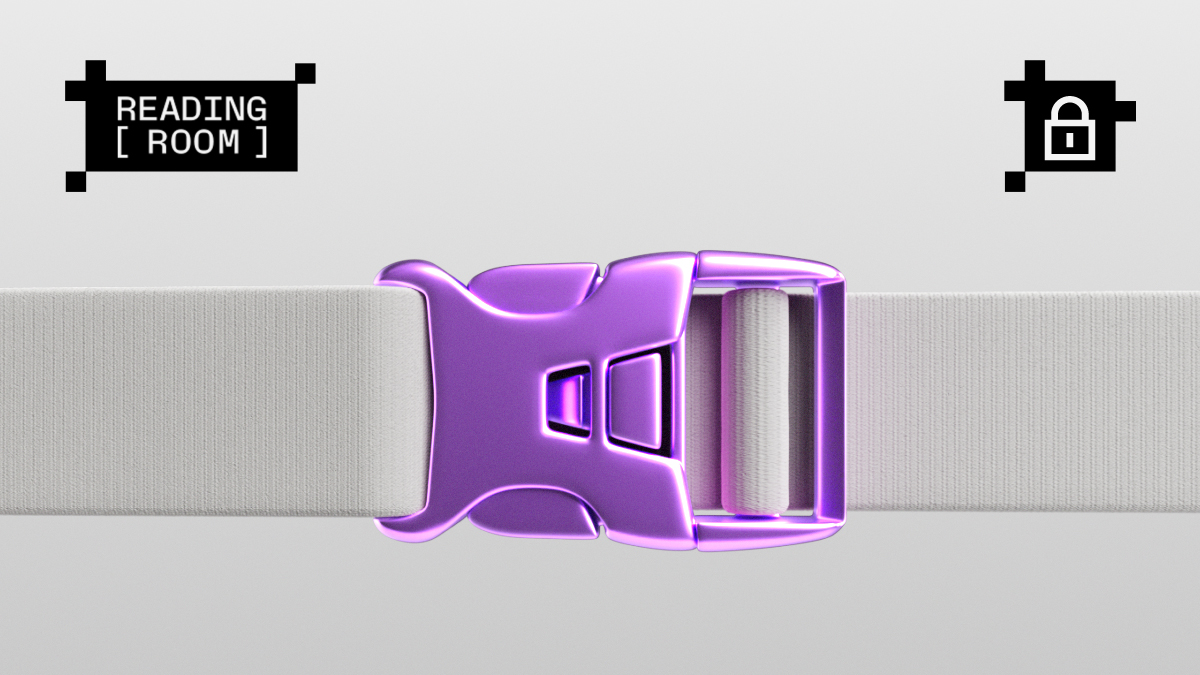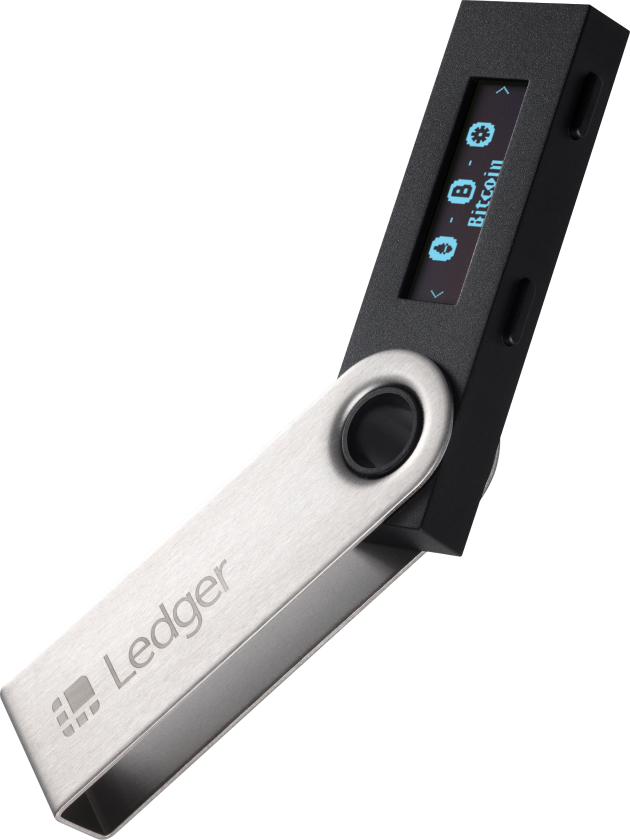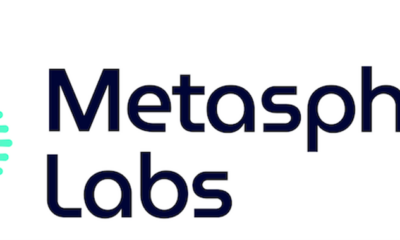Ethereum
The Best Ethereum Wallets For NFTs, DeFi and more in 2024

May 10, 2024
| Updated May 10, 2024
If you want to interact with the Ethereum network, you’re going to need a wallet that supports Ether (ETH) and other Ethereum assets. Of course, there are countless wallets to choose from, each with their own strengths and weaknesses. The key is identifying which purposes are most important for you. For example, if you want to manage Ethereum NFTs, you’ll need a wallet that supports these assets. Alternatively, if you want to take part in trading tokens on Ethereum, you will probably want to get yourself a wallet supported by the top DeFi apps and protocols.
In short, choosing an Ethereum wallet depends largely on you and your needs.
If you’re unsure where to start but want to know which Ethereum wallets are best—look no further. In this article, Ledger Academy will take you through the best Ethereum wallets for each purpose, including their strengths and weaknesses and how to manage each. But of course, if you need a refresher, check out the article on what an Ethereum wallet is. And if you already know about what Ethereum wallets do, let’s dive into the best Ethereum wallet options on the market.
6 Best Ethereum Hot Wallets
If you’ve ever interacted with the Ethereum network, you’ve likely got a hot (software) wallet already. These types of wallets come in a few key types: desktop wallets, mobile wallets or browser wallets. Typically, hot wallets are free to download and install and easy to use. For that reason, they are often a crypto user’s first wallet.
In addition, if you want to connect to decentralized protocols, such as DeFi apps or NFT marketplaces, you will probably need a hot wallet. Typically, these types of platforms only support a limited number of wallet providers, and most of the time, these will be hot wallets.
That said, hot wallets all come with a risk: they store private keys (the keys that control your account) on their host device, i.e. your laptop or smartphone. This is very convenient, as it means you only need a single device to send ETH and Ethereum assets. However, it also means your accounts are vulnerable to hacks. Laptops and smartphones are not designed for storing private keys, so if you must use one, it’s always best to connect it to a hardware wallet to keep your private keys offline and away from hackers.
So now you know about hot wallets, let’s dive into the best hot wallets for the Ethereum network.
MetaMask Wallet

Metamask is one of the most popular Ethereum hot wallets, boasting over 22.6 Million downloads to date. It comes in a few different variants: a desktop version, a browser extension version, or a mobile app version.
For NFTs, MetaMask is an industry leader: it is compatible with countless NFT marketplaces including OpenSea, Magic Eden, and more. It is also easy to use with NFT minting platforms such as Manifold, allowing you to create ETH NFTs with minimal effort. It is also one of the most popular hot wallets supported by Ethereum DeFi apps too. In short, it’s easy to interact with decentralized exchanges and protocols to swap, borrow, or lend your ETH and Ethereum tokens.
Besides those key functionalities, MetaMask also has an on-ramping option, allowing you to buy crypto via Paypal directly within its interface.
While it launched as an Ethereum hot wallet, primarily for protecting ETH and Ethereum tokens, today, it also supports a range of Ethereum layer two blockchains including Optimism, Polygon, and Base. Plus it’s not just the Ethereum network that Metamask supports. Today you can also use MetaMask to manage a range of networks outside the Ethereum ecosystem such as Harmony, Fantom, and Avalanche.
MetaMask Review
MetaMask Wallet |
Hot Wallet | Yes | Yes (Ledger, Trezor) |
FREE | Yes | Optimism, Polygon, Base, Linea | Harmony, Fantom, Avalanche and others | Yes (paypal, moonpay) |
No | Yes | Yes | Yes |
MetaMask Pros and Cons
| Pros | cons |
| ✅ Supports a large range of Ethereum layer 2s and some other leading layer 1 blockchains | ❌As a software (hot) wallet, it stores private keys on the host device, i.e. your smartphone or laptop. This leaves your accounts vulnerable to hacking |
| ✅ Offers on-ramping options | ❌Doesn’t allow you to visualize your NFTs by default |
| ✅ Compatible with most NFT and Defi platforms | ❌ Doesn’t offer many in-built features |
MyEtherWallet

MyEtherWallet is one of the older Ethereum hot wallets still in use. As a non-custodial wallet, MyEtherWallet gives you true ownership of your assets. It also offers privacy, never tracking its users’ personal data.
Launched in 2015, it was originally just for sending Ether, but these days, it offers support for a range of assets within the Ethereum ecosystem and beyond. Currently, you can use it to access Ethereum and all of its assets, including Ether and all ERC-20 tokens. You can also use it for a range of Ethereum Layer two networks including Optimism and Polygon.
However, the networks you can access differ slightly depending on which MyEtherWallet product you use.
Its browser extension wallet, Enkrypt, offers the most options, specifically designed for multi-chain features and interoperability between Ethereum, Ethereum layer twos, and other leading networks including Bitcoin and Polkadot. Then its mobile app, MEW, compatible with iOS and Android, has a more limited selection of compatible networks.
Finally, it also offers a web wallet, called MEW web. This offers a similar number of assets as the mobile wallet but has the added benefit of compatibility with a hardware wallet.
MyEtherWallet Review
MyEtherWallet |
Hot Wallet | Yes | Only for web and browser versions (Ledger, Trezor) | FREE | Yes | Optimism, Polygon | Bitcoin, Polkadot and others (for enkrypt only) | Yes (Moonpay, Simplex) |
No | Yes | No | Yes |
MyEtherWallet Pros and Cons
| Pros | cons |
| ✅ Offers an on-ramping option, allowing you to buy crypto with your bank card | ❌As a software wallet, it stores private keys on the host device, i.e. your smartphone or laptop. This leaves your accounts vulnerable to hacking |
| ✅ Supports both fungible and non-fungible tokens, including ERC-20 tokens, ERC-721 tokens and ERC-1155 tokens | ❌ Only the web wallet is compatible with a hardware wallet (such as a Ledger device) |
| ✅ Compatible with most NFT and Defi platforms | ❌Only supports a limited number of networks |
Rabby Wallet

Rabby wallet is a hot wallet that focuses on security and interoperability. It’s not just an Ethereum wallet though: it supports Ethereum itself plus over 145 chains, including Ethereum layer twos and a range of other networks, including Avalanche, Astar, Moonriver and more.
Rabby wallet comes in three versions: a browser wallet, a desktop wallet, and a mobile wallet (which is still in its beta version). Across all of its versions, it stands out with its focus on security, offering pre-signing checks that allow you to see the results of a transaction before you sign.
Apart from this key feature, Rabby Wallet also stands out for its dedication to open-sourcing its tech. Its tech stack boasts MetaMask’s battle-tested private key management system, audits by security professionals, and a “friendly” MIT license.
Rabby Wallet Review
Rabby Wallet |
Hot Wallet | Yes | Yes (Ledger, Trezor, Keystone, GridPlus and more) |
FREE | Yes | Arbitrum, Optimism, Base, Linea, Polygon | Harmony, Klaytn, Moonriver and many more | No | No | Yes | Yes | Yes |
Rabby Wallet Pros and Cons
| Pros | cons |
| ✅ Comes in 3 versions: a browser variant, a web wallet variant, and a mobile app | ❌As a software wallet, it stores private keys on the host device, i.e. your smartphone or laptop. This leaves your accounts vulnerable to hacking |
| ✅ Supports a large number of networks within the Ethereum ecosystem and beyond | ❌ As a new wallet, it’s not battle-tested which may leave it vulnerable to bugs |
| ✅ Offers pre-signing checks, allowing you to verify the results of a transaction before you sign | ❌ There’s no on-ramping option so you can’t buy crypto directly via the wallet’s interface |
Trust Wallet

Trust Wallet is one of the leading hot wallets for a range of networks including Ethereum. It launched in 2017, at the height of the DeFi craze, and as such it’s supported by countless DeFi protocols and platforms. Since then, Trust Wallet has expanded its offering, meaning most NFT marketplaces and minting platforms also support it.
While Trust wallet is primarily an Ethereum wallet, it is also compatible with a few other chains including Bitcoin, Cosmos, and Polkadot.
It comes in two main variants: a browser extension version and a mobile app version. To help you stay safe, it also offers security alerts and allows you to record your seed phrase using its encrypted cloud backup. In addition, it also guarantees it doesn’t track user data—aiming to keep its users safe.
Trust Wallet Review
Trust Wallet |
Hot Wallet | Yes | Yes (Ledger only) |
FREE | Yes | Arbitrum, Optimism, Base, Polygon | Cosmos, Bitcoin, Polkadot and others. | Yes Moonpay, Simplex, Banxa, Ramp and others |
Yes | Yes | No | Yes |
Trust Wallet Pros and Cons
| Pros | cons |
| ✅ Great for dapps: offers an easy way to interact with exchanges and stake crypto or trade NFTs | ❌As a software wallet, it stores private keys on the host device, i.e. your smartphone or laptop. This leaves your accounts vulnerable to hacking |
| ✅ Supports both fungible and non-fungible tokens, including ERC-20 tokens, ERC-721 tokens and ERC-1155 tokens | ❌ Not very user-friendly for managing NFTs |
| ✅ Offers on-ramping features that allow you to buy crypto with your bank card | ❌ Doesn’t offer a desktop version |
Guarda Wallet

Guarda Wallet is a hot wallet for Ethereum and over 50 other leading blockchains. Incredibly, it allows you to protect Ether and over 400k alternative assets, including SOL, BTC, ADA, Tezos, and many many more. Apart from its impressive list of supported assets, it also stands out for its unique crypto visa debit card which allows you to pay with crypto anywhere you like.
This hot wallet comes in two forms: a desktop version and a mobile app version. Its desktop version stands out for being compatible with a range of operating systems, from Windows to iOS, to Linux and more.
It also allows you to access the wider crypto ecosystem with in-built tools for buying, staking, and exchanging crypto within its interface.
Guarda Wallet Review
Guarda Wallet |
Hot Wallet | Yes | Yes (Ledger only) |
FREE | Yes | Arbitrum, Optimism, Base, Polygon and many more | Solana, Bitcoin, Cardano, Tezos and many more | Yes (SEPA) |
Yes | Yes | Yes | No |
Guarda Wallet Pros and Cons
| Pros | cons |
| ✅ Great for in-built features: offers on ramping and staking features | ❌As a software wallet, it stores private keys on the host device, i.e. your smartphone or laptop. This leaves your accounts vulnerable to hacking |
| ✅ Offers a crypto Visa debit card | ❌ Not very user-friendly for managing NFTs |
| ✅ The Desktop version is compatible with alternative operating systems such as Linux, Ubuntu, and Debian | ❌ Doesn’t offer a browser version if you prefer not to use an app or install a program |
Coinbase Wallet

Coinbase wallet is a hot wallet (software wallet) created by centralized exchange Coinbase. However, unlike default exchange wallets, Coinbase wallet does offer users self-custody. Essentially, it works like any other hot wallet you may be accustomed to: it allows you to manage private keys yourself and provides the tool you need to interact with decentralized apps and platforms. However, it also has a range of extra features.
Regarding networks, Coinbase wallet supports Ethereum, but it also supports Solana, Doge, and Bitcoin. You can also use your Coinbase hot wallet to protect any ERC-20 token you like with ease. This wallet also supports NFTs on the Ethereum network and layer twos such as Base, Optimism, and Polygon. You can also protect your Solana NFTs using this provider.
Coinbase’s self-custody wallet comes in two main types: a mobile wallet and an extension wallet. The mobile wallet is available on iOS and Android, whereas the extension version is available on Chrome and Brave browsers.
Coinbase Wallet Review
Coinbase Wallet |
Hot Wallet | Yes | Yes (Ledger only) |
FREE | Yes | Arbitrum, BNB Chain, Optimism, Polygon, Gnosis and more | Bitcoin, Dogecoin, Litecoin, Stellar Lumens, Ripple, Solana and more | No (possible if you link it to a coinbase custodial account |
No (possible if you link it to a coinbase custodial account) |
Yes | No | Yes |
Coinbase Wallet Pros and Cons
| Pros | cons |
| ✅ Easy to transfer funds to and from centralized coinbase wallets | ❌As a software wallet, it stores private keys on the host device, i.e. your smartphone or laptop. This leaves your accounts vulnerable to hacking |
| ✅ Easy user interface | ❌ Doesn’t offer a desktop version |
| ✅ Supports a wide range of networks and assets |
5 Best Ethereum Hardware and Cold Wallets
Although hot wallets are very popular and free to set up, they also come with significant risks. To explain, hot (software) wallets store private keys on their host devices, i.e. your laptop or smartphone. Unfortunately, these devices aren’t designed to protect private keys, which leaves them vulnerable to hacking.
To keep your crypto safe you must keep your private keys offline. That’s why hardware wallets exist: they are physical devices specifically designed to keep your private keys offline while signing transactions and interacting with the blockchain. The chip they store private keys in is extremely important. An effective hardware wallet will have security measures in place to mitigate risks of physical access and hacks.
Hardware wallets also typically allow you to create multiple accounts you can manage with a single device. This is particularly important for Ethereum wallets as it offers the key to accessing web3 apps and platforms securely. Using an HD wallet, you can segregate your assets into multiple accounts with distinct purposes, allowing you to sign potentially malicious transactions with an account unconnected to your main holdings.
These types of wallets are physical devices, and thus you will need to pay for them. As such, the features they offer and their security models differ from wallet to wallet.
Ledger Nano X

The Ledger Nano X is a hardware wallet perfect for managing your crypto and NFTs on the go.
It’s not just for the Ethereum network though, it also supports countless Ethereum layer 2 chains, such as Polygon, Arbitrum and Optimism. As such, you can also use it to protect whichever ERC-20 token you like. Outside of the Ethereum ecosystem, the Ledger Nano X also supports most major cryptocurrencies including Solana, Tezos, Cosmos and many many more.
The best thing about the Ledger Nano X is that it’s easy and intuitive to use. The device can connect to your internet-connected device with Bluetooth. Plus with Ledger’s companion app Ledger Live, you can manage, swap, stake, and sell your assets with ease.
Of course, like all Ledger devices, the Ledger Nano X benefits from Ledger’s cutting-edge security model. To explain, the Ledger Nano X stores private keys in a secure element chip; a completely isolated environment from your internet-connected device. This industry-grade chip is the same model used for bank cards and passports, and as such it is immune to physical hacks such as glitching and side-channel attacks.
Not only that, but it also offers a Trusted Display, a screen that connects directly to the secure Element. This Trusted Display shows you the receiving address of each transaction before you sign, allowing you to double-check that your internet-connected device’s screen is showing you the correct information. That way, even if your laptop or smartphone has been hacked, you can still sign transactions with confidence.
To keep you safe, Ledger devices, firmware, and software are battle-tested by The Ledger Donjon, a team of top-class white hat hackers. Due to their hard work, Ledger devices have never been hacked! As an extra benefit, Ledger devices are all compatible with Ledger Recover, a paid optional service that allows you to create a secure backup of your wallet access.
Ledger Nano X Review
Ledger Nano X |
Hardware wallet | Yes | $149 | Yes | Arbitrum, Base, Boba, Linea, Optimism, Polygon and more | Bitcoin, Cardano, Cosmos, Dogecoin, Fantom, Injective, Polkadot, Tezos and many more | Yes | Yes | Yes | Yes |
Ledger Nano X Pros and Cons
| Pros | cons |
| ✅ Supports a wide range of networks and assets | ❌ As it is a physical device, it is not free. |
| ✅Offers on-ramping via several different providers, allowing you to choose the best rates | ❌ Its Trusted Display is quite small, thus it may be difficult to read for some users |
| ✅ Offers in-built staking options from a range of staking providers via the Earn section of Ledger Live | ❌ Doesn’t allow you to visualize NFTs without installing a specialized NFT app. |
Trezor Model T

The Trezor Model T is the flagship crypto hardware wallet developed by SatoshiLabs due to its intuitive touchscreen, improved support for different cryptocurrencies, and advanced security features compared with the Trezor One model.
Like all hardware wallets, it stores private keys offline. This is essential to keep your crypto safe. It also offers a PIN code feature to prevent thieves from accessing your crypto with access to the physical device.
While all Trezor devices support EVM networks such as Ethereum, Polygon, and Avalanche, the Trezor T also supports non-EVM chains such as Tezos and Cardano. The Trezor Model T is also the only model that offers a recovery system: Shamir backup. In short, this allows you to back up your wallet access without your seed phrase.
Trezor Model T Review
Trezor Model T |
Hardware wallet | Yes | $179 | Yes | Polygon | Bitcoin, Solana, Dogecoin, Injective and some others | Yes | No | No | Yes |
Trezor Model T Pros and Cons
| Pros | cons |
| ✅ Offers a seed phrase backup solution called Shamir Backup | ❌ As it is a physical device, it is not free. |
| ✅Offers on-ramping, allowing you to buy crypto with fiat currencies | ❌ It doesn’t offer ways to Earn crypto via staking |
| ✅ Supports a wide range of networks and assets | ❌ Has limited support for Ethereum Layer twos and networks outside the ETH ecosystem |
SafePal S1

SafePal is a crypto wallet provider that offers both software and hardware wallets. Its flagship hardware wallet is the SafePal S1, which it claims is completely air-gapped. This means that as well as storing private keys offline, it doesn’t interact with any other device or take part in wireless or wired connectivity including Bluetooth, NFC, WiFi, and even USB cables.
This physical wallet offered by SafePal offers a full-colored screen and a D-pad for navigation.
The SafePal S1 mainly supports Ethereum and EVM chains and their tokens. However, it does have some limited support for other networks such as Bitcoin, Solana, Cosmos, and Tron.
SafePal S1 Review
SafePal S1 |
Hardware wallet | Yes | $49.99 | Yes | Arbitrum, Base, Polygon | Bitcoin, Cardano, Polkadot, Cosmos, Sui, and many more | Yes (Simplex) |
Yes | Yes | Yes |
SafePal S1 Pros and Cons
| Pros | cons |
| ✅ Offers in built staking to allow you to earn a passive income | ❌ Not very user-friendly for beginners |
| ✅Offers on-ramping, allowing you to buy crypto with fiat currencies | ❌ Is reasonably new on the market, which could leave it vulnerable to bugs |
| ✅ Completely airgapped, thus very secure | ❌ Has limited support for networks outside the ETH ecosystem |
D’CENT

D’cent biometric wallet is a hardware device with a unique fingerprint feature. D’cent biometric is not the only model D’cent offers, but it is certainly the most secure option out of the range. Alongside its fingerprint technology, it also offers a certified secure chip that encrypts the private keys it stores to help protect the wallet from physical hackers.
While it doesn’t offer an on-ramping or staking service, it does let you manage your NFTs and swap assets. It also comes with a mobile companion app that helps you track your portfolio.
D’CENT Review
D’CENT |
Hardware wallet | Yes | $159 | Yes | Polygon, Gnosis, Boba, Arbitrum and more | Bitcoin, Klaytn, Tron, Cardano, Cosmos, Solana and many more | Yes (Simplex, Wyre, Moonpay) |
No | Yes | No |
D’CENT Pros and Cons
| Pros | cons |
| ✅ Offers a unique biometric fingerprint system | ❌ Is reasonably new on the market which could leave it vulnerable to bugs |
| ✅Offers on-ramping, allowing you to buy crypto with fiat currencies | ❌ Doesn’t offer a desktop app as a companion app, meaning you will have to use it with a mobile app |
| ✅ Supports a large range of networks including Ethereum layer 2s and chains outside of the ETH ecosystem | ❌ Doesn’t offer in-built staking options |
Best Ethereum Wallet Reviews
Our Methodology To Review Ethereum Wallets
If you’re trying to pick the best Ethereum wallet for you, you might be wondering how to review each one. If you want to know why these Ethereum wallets made the list, let’s look at some of the elements that are important to take into account.
Type of Wallet
First of all, the type of wallet is important to assess. Software wallets are free, but they have security issues and are thus unsuitable for protecting large amounts of crypto. Hardware wallets, on the other hand, are very secure but they will cost you something, as you’ll have to invest in a physical device.
Custodianship
Custody of your crypto is also imperative to understand. To explain, custodial wallets (such as those offered by centralized exchanges) do not give you true ownership of your assets. Using a non-custodial wallet, you can guarantee that you are the only person with access to your accounts.
Compatible with a Hardware wallet
While hot (software) wallets may be required to connect to specific apps or platforms, as you know, they are not very good at keeping your funds secure. Thus, when considering which Ethereum hot wallet is best for you, checking its compatibility with a hardware wallet is a must. By using these two wallets together, you can access whichever platform you like without leaving your private keys in a vulnerable position.
Purchase Cost
Software (hot) wallets tend to be free, whereas hardware wallets can vary in cost. Before you buy a physical device, you may want to consider how much each of them cost and what kind of features they offer for that price.
Crypto assets and networks supported
While most Ethereum wallets will support Ether and Ethereum tokens (such as ERC-20 tokens and NFTs), that’s not always the case. Plus, if you want to explore Ethereum layer 2s or even networks outside the Ethereum ecosystem, it’s important to check out your chosen wallet’s support for these chains.
Device Compatibility
Not all wallets work on all devices. Some software wallets will have a desktop version but no mobile version or vice versa. Then you’ll also find that the companion apps for hardware wallets may not work on every internet-connected device either. If you use a less common operating system on your phone or laptop, this is an important feature to check.
Final Ethereum Wallet Comparison
MetaMask Wallet |
Hot Wallet | Yes | Yes (Ledger, Trezor) |
FREE | Yes | Optimism, Polygon, Base, Linea | Harmony, Fantom, Avalanche and others | Yes (Paypal, Moonpay) |
No | Yes | Yes | Yes |
MyEtherWallet |
Hot Wallet | Yes | Only for web and browser versions (Ledger, Trezor) | FREE | Yes | Optimism, Polygon | Bitcoin, Polkadot and others (for enkrypt only) | Yes (Moonpay, Simplex) |
No | Yes | No | Yes |
Rabby Wallet |
Hot Wallet | Yes | (Ledger, Trezor, Keystone, GridPlus and more) | FREE | Yes | Arbitrum, Optimism, Base, Linea, Polygon | Harmony, Klaytn, Moonriver and many more | No | No | Yes | Yes | Yes |
Trust Wallet |
Hot Wallet | Yes | Yes (Ledger only) |
FREE | Yes | Arbitrum, Optimism, Base, Polygon | Cosmos, Bitcoin, Polkadot and others | Yes | Yes | Yes | No | Yes |
Guarda Wallet |
Hot Wallet | Yes | Yes (Ledger only) |
FREE | Yes | Arbitrum, Optimism, Base, Polygon and many more | Solana, Bitcoin, Cardano, Tezos and many more | Yes | Yes | Yes | Yes | No |
Coinbase Wallet |
Hot Wallet | Yes | Yes (Ledger only) |
FREE | Yes | Arbitrum, BNB Chain, Optimism, Polygon, Gnosis and more | Bitcoin, Dogecoin, Litecoin, Stellar Lumens, Ripple, Solana and more | No (possible if you link it to a coinbase custodial account) |
No (possible if you link it to a coinbase custodial account) |
Yes | No | Yes |
Ledger Nano X |
Hardware Wallet | Yes | n.a | $149 | Yes | Arbitrum, Base, Boba, Linea, Optimism, Polygon and more | Bitcoin, Cardano, Cosmos, Dogecoin, Fantom, Injective, Polkadot, Tezos and many more | Yes | Yes | Yes | Yes | n.a. |
Trezor Model T |
Hardware Wallet | Yes | n.a | $179 | Yes | Polygon | Bitcoin, Solana, Dogecoin, Injective and some others | Yes | Yes | No | Yes | n.a. |
SafePal S1 |
Hardware Wallet | Yes | n.a | $49.99 | Yes | Arbitrum, Base, Polygon | Bitcoin, Cardano, Polkadot, Cosmos, Sui, and many more | Yes | Yes (Simplex) |
Yes | No | n.a. |
D’CNT |
Hardware Wallet | Yes | n.a | $159 | Yes | Polygon, Gnosis, Boba, Arbitrum and more | Bitcoin, Klaytn, Tron, Cardano, Cosmos, Solana and many more | Yes (Simplex, Wyre, Moonpay) |
No | Yes | No | n.a. |
Crypto Wallets Guide
What Is a Crypto Wallet?
A crypto wallet is a device or piece of software that allows you to manage and store private keys. These private keys allow you to control your account, thus a crypto wallet’s job is to give you the power over these keys without revealing them to anyone else.
How Do Ethereum Wallets Work?
Ethereum wallets will typically be controlled by something called a seed phrase. Essentially, this is like the master key to all of the accounts you create with that wallet. The seed phrase is made up of 12-24 words which is a human-readable translation of a very random number called the entropy. Each time you create a new account, your Ethereum wallet generates a key pair using your seed phrase: one public key and one private key. Let’s see why this is important.
Private Keys
Each blockchain address is controlled by a single private key. However, it’s important to note that anyone with this private key has access to the entire account. That’s why keeping it safe is imperative. The private key of each account is also necessary to generate the public key.
Public Keys
The public key of your account is its uniquely identifiable number. Essentially, it’s a unique code which allows others to find and send funds to your account. Your blockchain address is simply a translation of this number into a more human-readable format. As mentioned, is generated by your private key using a secure mechanism. This allows your wallet to restore your accounts with just the seed phrase, as there is a cryptographic link between the seed phrase, your private keys and your public keys. However, the link is cleverly designed so that it’s impossible to work out the private key with the public key, but very easy to work out the public key with the private key.
Types of Ethereum Wallet
Ethereum wallets come in three main types: software wallets, paper wallets and hardware wallets. Let’s take a look at each of them and how they differ from each other.
Mobile Ethereum Wallets
Software wallets, often referred to as hot wallets, operate via software on your computer or smartphone. This means they store private keys on an internet connected device vulnerable to online threats such as malware and spyware. All software wallets have this vulnerability, but apart from that, they have some key differences in features and functionality.
Mobile Ethereum Wallets
Mobile Ethereum wallets operate via apps on your smartphone. These types of wallets are convenient for interacting with crypto on-the-go.
Desktop Ethereum Wallets
Desktop Ethereum wallets are programs you install on your computer, such as a mac or PC.
Ethereum Wallet Extension
Ethereum wallet extensions work via browser extensions. If you want to use a wallet browser extension, you’ll need to check that your chosen browser is supported.
Ethereum Paper Wallets
Paper wallets are simply pieces of paper with private keys printed on them, typically in the form of a QR code. These types of wallets are very secure, as they are not vulnerable to online threats like malware and spyware. However, they also come with the risk of loss, theft and damage. If someone finds your paper wallet, they will automatically have access to your funds. Then if your paper wallet goes up in flames in a house fire, there’s no way to retrieve your funds.
Beyond that, they are also cumbersome and complex to use. It’s all too easy to make a mistake while transacting with a paper wallet—using them runs the risk of human error.
Ethereum Hardware Wallets
Hardware wallets are the most secure and user friendly type of Ethereum wallet. They store private keys offline, thus are immune to online threats. In addition, they offer a user-friendly interface, allowing you to interact with crypto just as simply as using a software wallet. Many hardware wallets also offer the option to connect to a software wallet too, so using these two types of wallets together gives you the best of both worlds: security and ease-of-use.
How To Create an Ethereum Wallet
Creating an Ethereum wallet depends on which type of wallet you choose. Let’s dive into the most popular types of Ethereum wallets and how to create them.
How To Create an Ethereum Hot Wallet
To create an ETH hot wallet you’ll need to follow these steps
- Choose which Ethereum wallet provider is best for you
- Install the software on your computer or smartphone
- Initiate the wallet set-up, which will typically involve recording your seed phrase
- Generate your first Ethereum account
Now you should have a new Ethereum hot wallet address you can use to send and receive ETH and Ethereum tokens.
How To Set up an Ethereum Hardware Wallet
Creating an Ethereum account will differ depending on which Ethereum hardware wallet you choose. But typically, you’ll need to follow these steps:
- Choose which Ethereum hardware wallet provider is best for you
- Purchase the physical device and wait for it to arrive
- Initiate the wallet set-up, which will typically involve installing its companion app on your internet connected device and recording your seed phrase
- Install the Ethereum app
- Create your first Ethereum account
Now you should have a new Ethereum wallet address you can use to send and receive ETH and Ethereum tokens.
Why Do You Need a Crypto Wallet?
Without a crypto wallet, you won’t be able to send ETH to anyone. Plus, without a non-custodial crypto wallet, you don’t actually own your funds. Unlike fiat currencies managed by financial institutions, crypto is decentralized. That means only you have access to the funds in your non-custodial wallet. Without a crypto wallet, you don’t really own your funds.
How Do You Choose the Best Ethereum Wallet?
Choosing the best Ethereum wallet very much depends on what you want to do with it. Using the above comparisons, you can analyze both software and hardware wallets side by side to decide which is best for you. Remember though, it’s important to consider the features it has, the networks it supports, its interoperability and, of course, its security features.
Frequently Asked Questions About the Best Ethereum Wallets
What Is the Best Crypto Wallet?
The best crypto wallet depends entirely on what you need it for. However, if you want a secure and user-friendly solution for managing your Ethereum assets, consider investing in a hardware wallet. With a hardware wallet, you can keep your private keys safe. Plus, some hardware wallets also offer the option to connect to software wallet interfaces, allowing you to interact with decentralized apps and services too.
What Is the Safest Ethereum Wallet?
The safest Ethereum wallet is one that stores private keys offline. Paper wallets and hardware wallets both offer this option, but the former comes with a risk: their vulnerability to loss, theft and damage. As a result, the safest Ethereum wallet is a hardware wallet.
What Is the Best Anonymous Ethereum Wallet?
The best Ethereum wallet for staying anonymous is paper or hardware wallet. Signing transactions offline makes sure you don’t accidentally reveal your identity through your internet connected device. If you want to guarantee your anonymity, you may even want to consider using an air-gapped wallet, although these are not user-friendly and are best left to the crypto experts.
What Is the Best Free Ethereum Wallet?
The best free Ethereum wallet depends on which features you require. Check out the comparison table above to find out which free Ethereum wallet suits your needs.
Ethereum
Ethereum (ETH) Whales Are Getting Incredibly Bullish: Details

Cover image via www.freepik.com
Disclaimer: The opinions expressed by our editors are their own and do not represent the views of U.Today. The financial and market information provided on U.Today is intended for informational purposes only. U.Today is not responsible for any financial loss incurred while trading cryptocurrencies. Do your own research by contacting financial experts before making any investment decisions. We believe all content to be accurate as of the date of publication, but some offers mentioned may no longer be available.
Ethereum (ETH) Whales are making major moves in the cryptocurrency market, suggesting strong bullish sentiment despite short-term price volatility. According to crypto analyst Ali Martinez, these big investors have accumulated over 126,000 ETH in the last 48 hours, or about $440 million.
In a tweet, Ali wrote: “Ethereum whales have accumulated over 126,000 ETH in the last 48 hours, worth around $440 million.”
According to CryptoQuant CEO Ki-Young-JuWhales may be preparing for the next move in the market. Ju wrote in a tweet that “whales may be preparing for the next rally in altcoins.” He noted that the volume of limit buy orders for altcoins, excluding Bitcoin and Ethereum, is increasing, indicating that strong buy walls are being put in place.
Ethereum’s recent developments, including the recent launch of Ethereum spot ETFs in the US, appear to have increased its appeal among large holders, known as crypto whales. Ethereum recently celebrated nine years since its inception, and as the ETH network continues to evolve, it is likely to attract more institutional interest.
Related
According to data from Farside Investors, fund flows into U.S.-listed Ethereum spot exchange-traded funds turned net positive daily for the first time since their inception on July 31, primarily due to a decrease in outflows from the Grayscale Ethereum Trust.
Ethereum Price Drops Due to Market Crash
Bitcoin and Ethereum, along with the majority of other crypto assets, appear to be underperforming during Thursday’s trading session.
According to CoinMarketCap dataAt the time of writing, Bitcoin’s price was $64,034, down 2.77% from the previous day. Ethereum’s price is down 4.21% from $3,175, where it was 24 hours ago. Several cryptocurrencies were posting larger losses; Solana’s Dogwifhat was down 12% in the past 24 hours, and PEPE was down 7% in the same period.
According to CoinGlass, price followers have led to the liquidation of $225 million worth of derivatives contracts over the past day.
Ethereum
Ethereum (ETH) Price Hits $50,000? Target Updated by Analyst

Vladislav Sopov
Extreme skepticism from Ethereum (ETH) detractors has prompted a veteran researcher to double down on Ether
Read U.TODAY on
Google News
Ethereum (ETH) proponent and AI enthusiast Adriano Feria has presented an extremely optimistic Ether price prediction. After the reaction of skeptics, he reconsidered the target, increasing it by 100%. His views are aligned with those of major institutional players, according to recent data.
Ethereum (ETH) bullish hypothesis should get us there: researcher
Ethereum (ETH) could hit $50,000 early in the current cryptocurrency market cycle. At the same time, a “bullish scenario” could push the price of the second-largest cryptocurrency to six-digit values, Web3 and AI educator Adriano Feria told X.
In a tweet shared with his 14,000 followers, Feria stressed that he is confident in the promising prospects of Ethereum (ETH) despite the massive wave of hatred against Crypto X. The doubters will regret their skepticism, the researcher admits:
If you hold ETH today, you are truly part of the global elite, because the bullish scenario for ETH should take us to $100,000. You think this is a joke, but there are real financial institutions around the world that have set bullish targets that are close to this. And no, this is not a joke.
Three days ago, he “increased” the $28,000 per ETH prediction published by Eric Conner, a veteran of the Ethereum (ETH) ecosystem and co-author of EIP 1559.
These ultra-bullish statements come amid growing disbelief triggered by ETH’s weak short-term performance.
The second-largest cryptocurrency failed to take off following the launch of the Ether ETF in the United States. At press time, Ethereum (ETH) was trading at $3,311, down nearly 6% from the local peak set after the ETF launched on July 23.
Insane BTC and ETH Price Predictions Released Every Day
As previously reported by U.Today, in February, Feria noted the rapid increase in popularity of ETH staking based on on-chain data.
In recent days, more and more analysts are sharing incredibly high predictions for Bitcoin (BTC) and Ethereum (ETH), the two largest cryptocurrencies.
For example, US asset management heavyweight VanEck has suggested two scenarios for the price of BTC in 2050.
The most optimistic scenario sees BTC surpassing $52 million per coin, while the $2.9 million mark is considered a “baseline” scenario by VanEck.
About the Author
Vladislav Sopov
Blockchain analyst and writer with a scientific background. 6+ years in computer analysis, 3+ years in blockchain.
I have worked in independent analysis as well as in start-ups (Swap.online, Monoreto, Attic Lab etc.)
Ethereum
Lloyd’s of London-backed insurance policies can now be paid in crypto on Ethereum

Lloyd’s of London, the three-century-old insurance marketplace, is supporting digital asset protection policies curated on the Ethereum public blockchain that can be paid for natively, on-chain, using cryptocurrency, through Lloyd’s Coverholder Evertas and smart contract insurance provider Nayms.
Not so long ago, any kind of cryptocurrency insurance coverage Finding solutions was difficult. Aside from the efficiency benefits of paying for insurance policies in cryptocurrency and using blockchain to streamline the burdensome paperwork of intermediaries, a consortium of Lloyd’s of London syndicates backing cryptocurrency-native, on-chain insurance shows how far the industry has come in the last two years.
“We’re enabling people using public blockchain infrastructure to interact with traditional, highly regulated, fiat-backed institutions in a transparent way,” Evertas CEO J. Gdanski said in an interview. “Whether it’s paying in USDC or native cryptocurrency, or placing policies entirely on-chain with blockchain helping coordinate between a broker, the policyholder, and insurers, we believe this is a foundational infrastructure.”
Nayms, a digital marketplace where brokers and underwriters connect with crypto capital investment, is a play on Lloyd’s “names,” the collection of individuals and companies that underwrite risks in the historic insurance market.
“The native cryptocurrency expertise we bring to the underwriting process gives us a deep understanding of the risks we insure,” Nick Selby, the company’s head of European underwriting, said in an interview. “It means we’re very explicit about what we do and don’t cover, and we can pay insured claims faster than anyone else.”
Ethereum
10 Years of Crypto Innovations! Here’s How Buterin Sees the Future of Ethereum!

2h45 ▪ 3 min read ▪ by Eddy S.
At the EDCON2024 conference, Vitalik Buterin unveiled the future directions of Ethereum, with a focus on innovative application development and wallet security. He presented promising projects and innovative ideas to improve privacy and accessibility for cryptocurrency users.
Ethereum’s new innovations by Vitalik Buterin!
Vitalik Buterin delivered a key speech on the future of Ethereum in the next ten years. He stressed that the priority of the crypto blockchain will now be to develop applications. Some of the already successful applications include decentralized finance (DeFi), decentralized identities (DID) with the Ethereum Name Service (ENS), DAOs and NFTs.
Vitalik also highlighted several promising projects. These include the prediction market Polymarket, the social media aggregator Firefly, the wallet Daimo, and the voting tool Rarimo. These applications illustrate the diversity and potential of Ethereum-based technologies to transform various sectors of crypto.
Vitalik also proposed several innovative ideas to improve the security and accessibility of Ethereum wallets. One of his proposals is to encrypt the private key directly into the cell phone’s chip! Thus turning the phone into a secure crypto wallet. Another idea is to place part of the private key in a regulatory-compliant custodial institution, thus providing an additional layer of security.
Vitalik also mentioned the use of zero-knowledge (ZK) proof technology to link KYC information to the wallet. This approach would ensure the privacy of cryptocurrency users while meeting regulatory requirements.
Security and Privacy: Two Requirements for Cryptocurrency Users
These proposals aim to improve the security and privacy of cryptocurrency users while facilitating the adoption of the technology by a wider audience. By combining technological innovations with practical applications, Ethereum continues to position itself as a leader in the cryptocurrency and blockchain ecosystem.
Vitalik Buterin’s speech highlighted Ethereum’s many advancements and future prospects. With a focus on application development and innovative proposals for crypto wallet security, Ethereum is well-positioned to continue to grow and innovate in the years to come.
Optimize your Cointribune experience with our “Read to Earn” program! Earn points for each article read and access exclusive rewards. Sign up now and start earning benefits.
Click here to join “Read to Earn” and turn your passion for crypto into rewards!
Eddy S.
The world is changing and adaptation is the best weapon to survive in this undulating universe. Originally a crypto community manager, I am interested in everything that is closely or remotely related to blockchain and its derivatives. To share my experience and promote a field that fascinates me, there is nothing better than writing informative and relaxed articles.
DISCLAIMER
The views, thoughts and opinions expressed in this article are solely those of the author and should not be considered investment advice. Do your own research before making any investment decision.
-

 Videos9 months ago
Videos9 months agoCrypto News: Bitcoin, ETH Price, CPI Print, PYTH, WIF & MORE!!
-

 Videos9 months ago
Videos9 months agoCrypto News: Bitcoin Price, ETF, ETH, WIF, HNT & MORE!!
-

 DeFi9 months ago
DeFi9 months agoMetasphere Labs announces follow-up event regarding
-

 Videos9 months ago
Videos9 months agoSolana price potential?! Check out THIS update if you own SOL!!
-

 Videos8 months ago
Videos8 months agoWho Really CONTROLS THE MARKETS!! Her plans REVEALED!!
-

 DeFi6 months ago
DeFi6 months agoPump.Fun Overtakes Ethereum in Daily Revenue: A New Leader in DeFi
-

 DeFi6 months ago
DeFi6 months agoDegens Can Now Create Memecoins From Tweets
-

 News6 months ago
News6 months agoNew bill pushes Department of Veterans Affairs to examine how blockchain can improve its work
-

 News6 months ago
News6 months agoLawmakers, regulators to study impact of blockchain and cryptocurrency in Alabama • Alabama Reflector
-

 Bitcoin6 months ago
Bitcoin6 months ago1 Top Cryptocurrency That Could Surge Over 4,300%, According to This Wall Street Firm
-

 Ethereum8 months ago
Ethereum8 months agoComment deux frères auraient dérobé 25 millions de dollars lors d’un braquage d’Ethereum de 12 secondes • The Register
-

 Videos8 months ago
Videos8 months agoCryptocurrency News: BTC Rally, ETH, SOL, FTM, USDT Recover & MORE!






